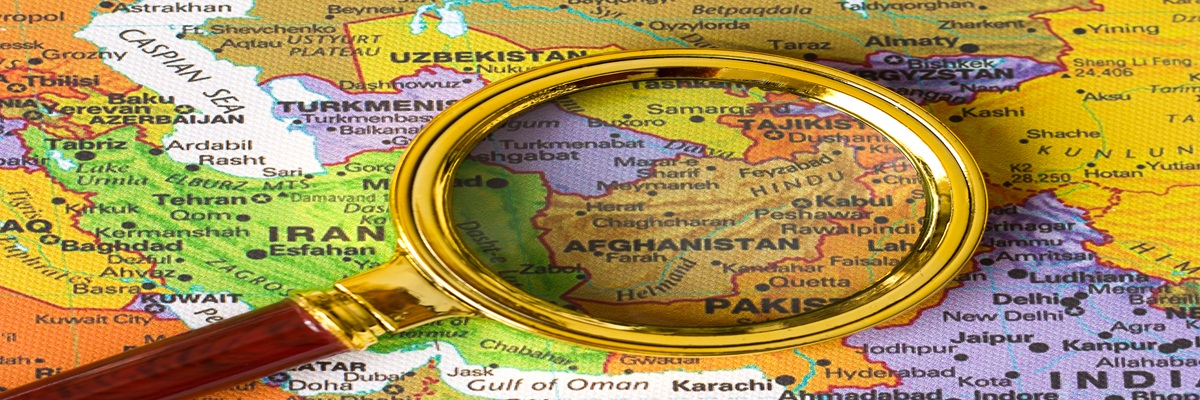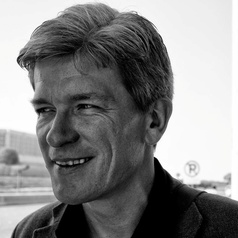Diplomacy
Afghanistan: has the time come to recognize the Taliban government?

Image Source : Shutterstock
Subscribe to our weekly newsletters for free
If you want to subscribe to World & New World Newsletter, please enter
your e-mail
Diplomacy

Image Source : Shutterstock
First Published in: Dec.01,2024
Jan.13, 2025
Is it justifiable to continue not recognising the Taliban government, which has been in power for more than three years? This stance does nothing to improve the situation of Afghan women and prevents the international community from fully engaging on other critical issues in the country. Report from the field by a UN consultant.
Working for the United Nations in Afghanistan
Working for the United Nations in Afghanistan today presents curious challenges. The Taliban government, in power since August 15, 2021, is not recognised. Despite this non-recognition, the UN maintains a considerable political presence in the country, while UN agencies, primarily providing humanitarian aid to the population to the tune of several billion dollars per year.
When the Taliban took power, they assured the international community that foreign civilians could remain and that would be protected. Western diplomatic missions all left to avoid recognising the new regime, but UN agencies remained on the ground. Their presence was justified by the duty to assist the population.
Afghanistan is indeed beset by multiple crises. The war has ended, but the country has been severely affected by climate change since at least the 1990s. Long droughts alternating with torrential rains, as well as the melting glaciers that feed irrigation canals, have caused a decline in agricultural productivity and rural exodus to cities.
Adding to this is a severe economic contraction: the abrupt departure of the international community caused GDP to fall by 28% in one year. By autumn 2021, another year marked by drought, the UN was forecasting a possible famine. Somewhat reluctantly, the international community continued to fund activities in Afghanistan – on the condition that its funds did not benefit the Taliban.
There was no humanitarian catastrophe that first winter or in the years that followed, even though the dual climate and economic crises persisted, compounded by other disasters, both natural (earthquakes and floods) and political (Pakistan’s decision to expel hundreds of thousands of Afghans). The UN takes credit for averting a grave humanitarian crisis, although other factors, such as peace and solidarity among Afghans, may have contributed more.
Contradictory positions
UN agency leaders in Afghanistan must coordinate their activities with the new authorities, who had developed a strong grip on society even before returning to power during two decades of “shadow governance.” Their prudent administration of controlled areas, coupled with what many Afghans perceived as a national liberation war against a foreign occupation, had garnered a certain degree of popular legitimacy, which has grown since they assumed power.
After 20 years of war and NATO’s withdrawal, the Islamic Emirate of Afghanistan – the Taliban’s official name – is not going anywhere for now. This is clear to everyone in Afghanistan, including those within UN agencies.
However, the UN refers to the new regime as the “de facto authorities” stressing that they lack international legitimacy. The previous government, despite its complete collapse, still holds Afghanistan’s seat at the UN and most embassies worldwide. While some key states, notably China, Iran and Russia, have engaged with Kabul’s leaders, the Islamic Emirate lacks representation in international institutions, where the Taliban are still regarded as a terrorist organisation.
Pressure on the Taliban to accept values that we see as universal – which they dispute – only radicalises them further. As the Taliban’s Director of International Trade told me in December 2023, citing their efforts against ISIS-K and the destruction of opium fields:
“[The international community] wanted us to fight terrorism. We did. You were concerned about opium production harming your youth. We ended it. Yet, you have never publicly acknowledged that the Islamic Emirate solved the problems your [2001–2021 republic] government could not. Now, you constantly criticise us over Afghan women and expect us to listen. But this concerns our society, and you have no say in it.”
Within the UN, the perception of the Taliban as misogynistic religious barbarians to be categorically rejected is widespread. However, such rhetoric has no impact on the plight of Afghan women and complicates the work of UN staff on the ground. They must publicly reject the Taliban government while at the same time enjoy their protection and hospitality, and negotiate with them discreetly to achieve concrete outcomes.
Quiet exchanges yield results
In April 2023, the Taliban announced that Afghan women could no longer work for the UN in the country. Yet, no women – to my knowledge – have been dismissed to date, and new recruits have even been hired, thanks to behind-the-scenes dialogue with Taliban leaders. Public UN criticism of the Taliban’s policies on women risks jeopardising such negotiations.
International attention on Afghanistan remains narrowly focused on one issue: the condition of Afghan women. A French TV producer to whom I was pitching a few ideas about Afghanistan warned me that if my pitch didn’t involve “beards and burqas,” no network would be interested. While the plight of Afghan women, particularly girls barred from secondary and higher education, should not be minimised, other issues also deserve attention.
For example, Afghanistan contributes almost nothing to climate change but suffers heavily from it. If desertification in this country of 40 million people continues, we can expect waves of migration to neighbouring and wealthier temperate countries. The Islamic Emirate is concerned about the climate threat and could be an effective partner in climate adaptation – but only if allowed to participate in international forums and access funding, such as those negotiated at COP 29. While the Taliban were invited to COP 29, they were only given an observer status.
The FAO, for which I served as a strategic communications advisor, continues to implement programs for environmental preservation, reforestation, and irrigation projects. But when it comes to communication, it is crucial to clearly demonstrate that the benefits are exclusively for the affected communities, not the government. If a government official is present at an inauguration, we make it a point to avoid publishing their photo.
The UNDP, another agency with a mandate on climate change, has halted all environmental programs to avoid any suspicion of collusion. Even the term “development”, which in UN parlance is associated with support to national governments, is now prohibited in agency communications in Afghanistan, replaced by the term “basic needs.”
Despite their public hostility toward the Taliban, they continue to accept the UN because it eases pressure on their government regarding humanitarian aid, facilitates some level of dialogue with the international community, and brings an influx of dollars into a struggling economy. Although this acceptance allows the UN to maintain its presence on the ground, it could also be interpreted as implicit support for the Islamic Emirate. Highly sensitive to this accusation, UN agencies prefer to remain discreet and avoid investing in major projects the country urgently needs, such as those addressing climate change adaptation.
Breaking the deadlock
Refusing to acknowledge the Taliban government in Afghanistan seems to achieve little beyond giving Western politicians a moral boost as protectors of Afghan women.
While this stance may comfort Afghan exiles hoping to regain power with Western backing, it changes nothing on the ground. Believing the Taliban will collapse under international public pressure after defeating the US and NATO is wishful thinking.
A more transparent relationship with Afghanistan’s new rulers would improve the UN’s chances of having a positive impact on the country, especially in the medium and long term.
First published in :

Robert Kluijver worked in conflict or post-conflict areas since 1997, in Tajikistan, Afghanistan, Iraq, Syria, Yemen, Somalia and Sudan. Master-thesis in post-Soviet studies under the supervision of Olivier Roy (1999), PhD in International Relations under the supervision of Roland Marchal and Luis Martinez (2023). Lecturing at the Paris School of International Affairs and Sciences Po since 2010. Also curator of contemporary art, specializing in the Arab World & Indian Ocean region.
Unlock articles by signing up or logging in.
Become a member for unrestricted reading!